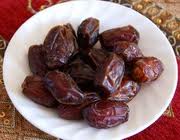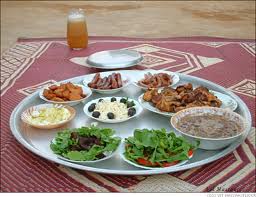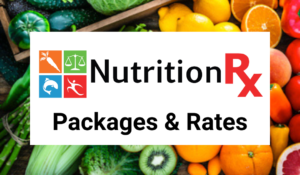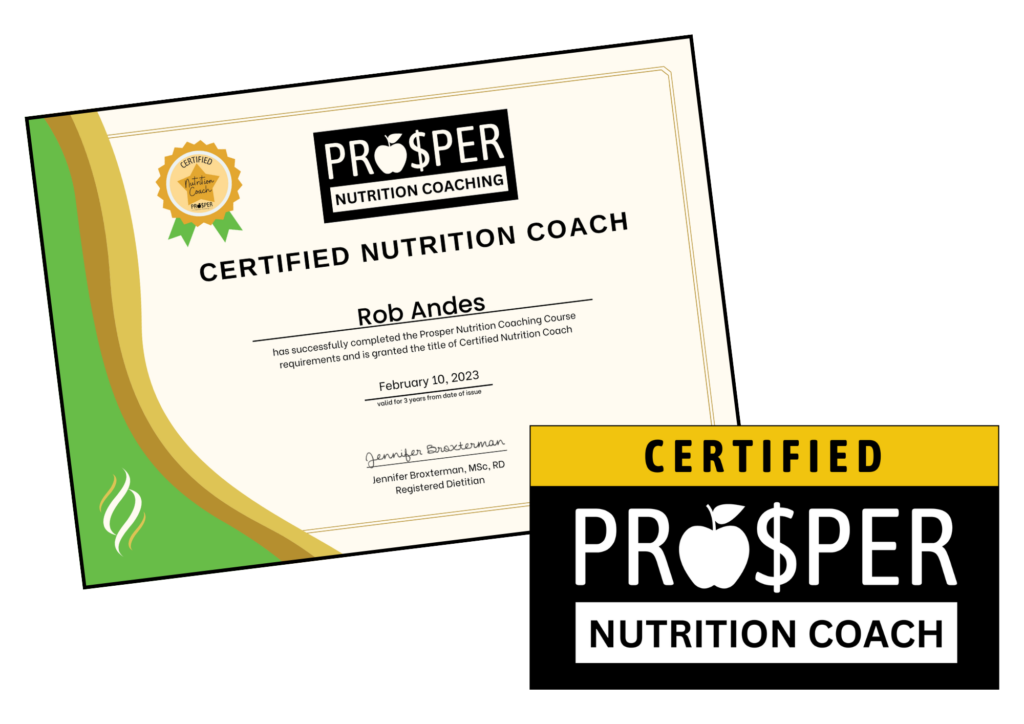

Ramadan: A Quick Nutrition Guide to Fasting
Written By: Jennifer Broxterman
Registered Dietitian & Sports Nutritionist
NutritionRx | www.nutritionrx.ca
Email: info@nutritionrx.ca
Phone: (519) 520-9549

The month of Ramadan is a wonderful opportunity for Muslims to focus on bringing back a balanced and healthy lifestyle that includes a healthy diet, regular mental and physical exercise, and a harmony between physical and spiritual needs. Through fasting, you can become more in tune with your eating habits, have time to break down and expel accumulated toxins from your body, and improve your self-control and discipline. This article aims to help Muslims minimize health complications and maximize the benefits from fasting during the month of Ramadan.
Physiological Changes that Occur During a Fast
The body enters into a fasting state approximately eight hours after the last meal, when the body finishes absorbing nutrients from the food we have eaten. During a fast, the body initially relies on stored glucose in the liver and muscles to provide energy. Once those stores of glucose run out, fat becomes the next source of stored energy for the body to use. During a prolonged fast lasting many days to weeks, the body begins to digest protein from our muscles, which is a state commonly referred to as ‘starvation’ and is not healthy. As the Ramadan fast only extends from dawn until dusk, there is ample opportunity to replenish energy stores at pre-dawn and dusk meals, thus preserving muscle protein.
Foods that Benefit and Foods that Harm
Fasting during Ramadan can improve a person’s health, however, overeating can not only harm the body but it is also thought to interfere with a person’s spiritual growth during the blessed month. Try to follow a balanced diet that contains foods from all four food groups, and does not differ too much from your normal everyday diet.
- Healthy Foods to Include: Aim to eat lots of complex carbohydrates, which release energy slowly during the long hours of fasting. Complex carbohydrates are found in foods such as whole grains and seeds, like barley, wheat, oats, millets, semolina, beans, lentils, wholemeal flour, basmati rice, etc. Fibre-rich foods are also digested slowly and include bran, cereals, whole wheat, grains and seeds, potatoes and sweet potatoes with the skin on, vegetables, and fresh and dried fruits, including apricots, prunes, and figs. The most commonly consumed foods by Prophet Mohammed were milk, dates, lamb/mutton, and oats. Other healthy foods mentioned in the Holy Qur’an were fruit and vegetables, such as olives, onions, cucumber, figs, dates, grapes, as well as pulses such as lentils.

- Foods to Avoid: Try to limit heavily-processed, quick-burning foods that contain refined carbohydrates in the form of sugar and white flour, as well as high-fat foods such as cakes, biscuits, chocolates and sweets. It may also be beneficial to limit or avoid caffeine-containing beverages such as tea, coffee, cola, and energy drinks, since caffeine can act as a diuretic and may stimulate faster water loss through urination.
- Suhoor: The pre-dawn meal should be a wholesome, moderate meal that is filling and provides enough energy for many hours. Try to focus on eating slowly-digesting foods in the suhoor.
- Iftar: This is the meal that breaks the day’s fast. Dates at this time of day can provide a refreshing burst of much-needed energy. Fruit juices will also have a similar, revitalizing effect. This meal should remain a meal and not become a feast.
Fasting during the month of Ramadan teaches Muslims to practice spirituality and to be grateful for the food that is made available. It also provides an opportunity to make positive changes in one’s lifestyle, re-commit to making healthy living choices, and to balance the needs of the physical body and spiritual being.

Wishing you health & happiness,
♡ Jen
Jennifer Broxterman, MSc, RD
Registered Dietitian
NutritionRx: happy, healthy living with our team of Registered Dietitians
Prosper Nutrition Coaching: a world-class nutrition coaching certification
+
+
+
Want to work with a NutritionRx Registered Dietitian?
Learn more here: Nutrition Packages & Rates
+
+
+
Want to become a Certified Nutrition Coach?
Learn more about our habits-based Prosper Nutrition Certification



